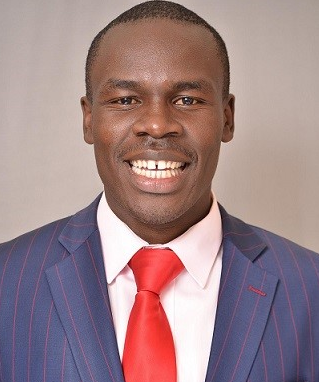In a bold stance, South Mugirango Member of Parliament Silvanus Osoro has rebuked Kenyans who oppose the 2024 Finance Bill, which introduces a series of additional taxes.
This contentious draft legislation has sparked widespread debate and discontent among both legislators and citizens, culminating in protests in Nairobi ahead of its presentation to Parliament.
Although the government has announced the removal of certain proposed levies, such as a 16 per cent Value Added Tax on bread and excise duty on vegetable oil, some Kenyans remain unsatisfied, calling for the complete abandonment of the bill.
However, Osoro, serving as the National Assembly Majority Whip, has dismissed their grievances, asserting that the proposed taxes are essential for the government to fulfill its obligations to the Kenyan populace.
Osoro’s remarks highlight a stark division of opinion regarding the bill, underscoring the complex dynamics at play in the ongoing discourse surrounding fiscal policy and public welfare in Kenya.
“When you wake up and say you want roads built, or graduate, get a TSC number and say you want employment, you say you need to be taxed. Ideally, you say, ‘get someplace you can tax so I get employed’,” Osoro told Citizen TV’s Daybreak program on Wednesday.
“When an intern teacher protests in the streets wanting to be employed permanently, they are telling the government to expand the tax base.”
He termed the resistance to new taxes ironic and a deliberate campaign to “demonise” President William Ruto’s government, to whose UDA party Osoro belongs.
“When someone in the village says they want electricity, they simply say, ‘Please, tax us’. Kenyans must know that the government runs on your taxes,” said the Majority Whip.
The Finance Bill, spearheaded by Molo MP Kimani Kuria, another UDA legislator who chairs the National Assembly Finance and Planning Committee, is at the center of Kenya’s fiscal discourse.
With the Treasury aiming to generate an additional Ksh.346.7 billion in taxes through this bill, equivalent to 1.9 per cent of Kenya’s GDP, the stakes are high in light of the Ksh.3.9 trillion budget recently presented by Cabinet Secretary Njuguna Ndung’u.
Osoro contends that the budget allocation for salaries and development projects in the 2024/25 fiscal year is insufficient. He argues that in order for the government to meet its obligations and undertake essential projects, it requires increased revenue from Kenyans, necessitating the implementation of additional taxes.
“You need to get a source to fund this Ksh.4 trillion, pay salaries, build roads and supply electricity,” the MP said.
Last week, the exchequer announced Kenya’s intention to borrow Ksh.333.8 billion from external sources and Ksh.263.2 billion from the domestic market to fund the budget.
With this financial backdrop, Members of Parliament are poised to commence deliberations on the Finance Bill starting Wednesday, ultimately shaping its destiny before the end of the fiscal year on June 30th.



